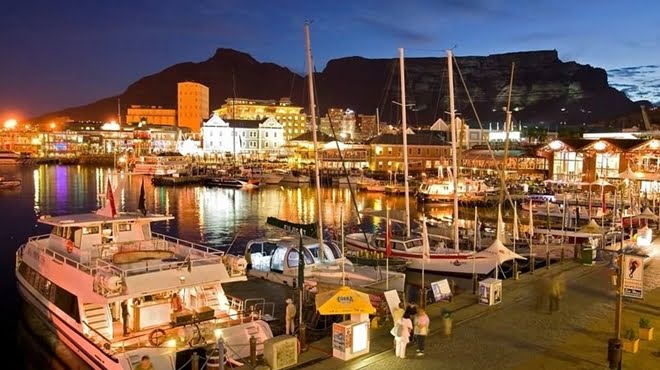Listed Growthpoint and the Public Investment Corporation (PIC), the equal joint owners of the Victoria & Alfred (V&A) Waterfront, aim to have a desalination plant operational by next year to provide water for the precinct and mitigate the risk to their investment caused by Cape Town’s water shortage crisis.
David Green, the chief executive of the V&A Waterfront, confirmed at the weekend the desalination plant would produce between 3.5million and 5million litres of water a day and would cost about R200 million.
“We have the authority to spend, we have appointed consultants, but we haven’t appointed the actual contractors to start it yet.
“There is a long lead time and these things require a huge amount of power,” he said. The property assets of the V&A Waterfront are valued at a total of R17.4billion.
Norbert Sasse, the chief executive of Growthpoint Properties, said that apart from the planned desalination plant, the V&A Waterfront had borehole water and storage tanks had been installed that get fed from the boreholes.
Sasse said they were also investigating the “water from air technology” but admitted he had no knowledge of how this technology worked.
Green said the desalination plant they were planning to build for the V&A Waterfront was independent and separate from the temporary 2million-litre-a-day desalination plant that was being built by the City of Cape Town on a site in the V&A Waterfront that they donated to the city.
He added that despite the site being donated to the City of Cape Town, the V&A Waterfront did not have any commercial arrangement with the city on the water produced by the plant and the city could do what it wanted with the water it produced.
Green said they were doing everything possible to reduce water usage in the V&A Waterfront and had reduced water consumption by 63percent and were pushing to achieve further savings.
He said the City of Cape Town had not yet finalised its plans for Day Zero and was considering whether it would also turn off the taps in the major business hubs, including the central business district that includes the V&A Waterfront, because it was in the heart of the city from a commercial viewpoint and also from a reputational perspective.
Green said he had a meeting with all the 11 hotels in the V&A Waterfront last week and they had reported that two tourist groups had expressed concern about the water situation and asked if the hotels could guarantee that there would be water.
But Green said he was not aware of any major booking cancellations because of Cape Town’s water shortage crisis.
Councillor Xanthea Limberg, the City of Cape Town mayoral committee member for informal settlements, water and waste services and energy, confirmed on Friday the 2million litres a day desalination plant at the V&A Waterfront was on track to start producing water by March and April this year.
Limberg said the 7 million litres a day Strandfontein project was due to start producing water from March this year but the Monwabisi project, which was the identical size and scheduled to start producing water by next month had been delayed to facilitate further community engagement in the area.
She stressed any desalination plant contracts awarded to contractors as part of the city’s emergency water augmentation scheme would be required to deliver water that must meet South African national standards requirements.
Limberg said following advice from the World Bank, the city had shifted focus from desalination to optimising the use of aquifers in the short-term, because this was more cost effective and quicker to implement than temporary desalination plants.
She said the Cape Flats aquifer would deliver 80 million litres a day, the Table Mountain Group aquifer 40 million litres per day, and the Atlantis aquifer 30 million litres a day over 2017/18 and 2019/20.
“The groundwater abstraction projects form part of the city’s programme to supply additional water from desalination, water recycling and groundwater abstraction.
“Abstracting groundwater in bigger volumes means the city can deliver more water at a lower cost,” she said.
